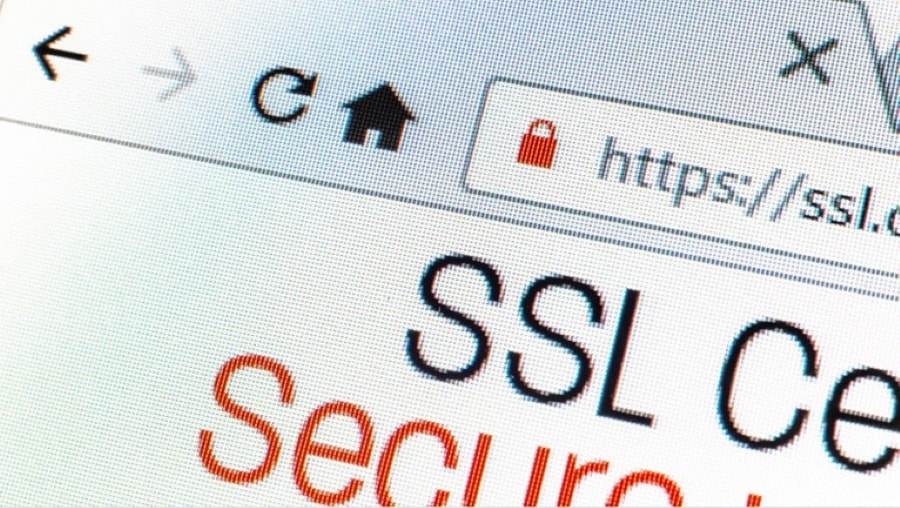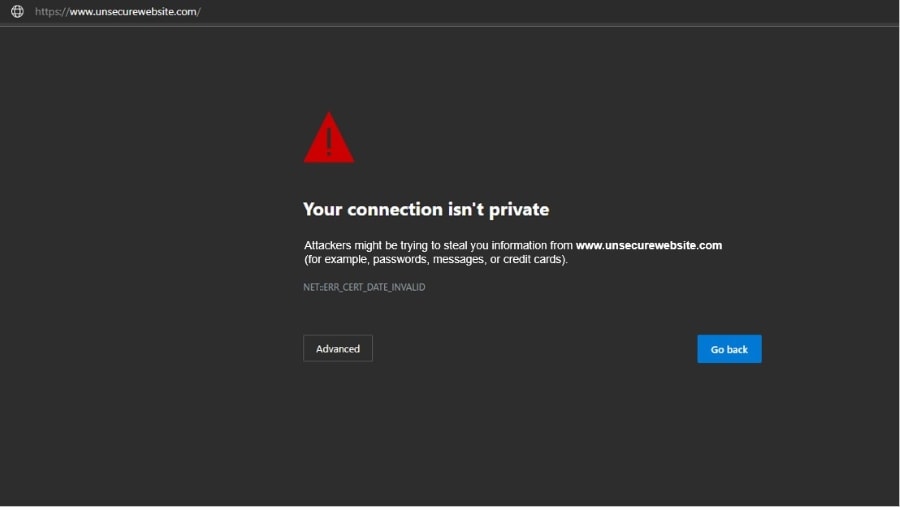Understanding the benefits of an SSL Certificate for your Business Website

Understanding the benefits of an SSL certificate for your business website is crucial to recognize why an SSL certificate for a company website is not an option or a costly expense.
SSL certificates can be temporary files that link an organization’s data to a cryptographic key. This helps protect the connection between a web server and a browser.
Sites with an SSL certificate (Secure Sockets Layer) often display a padlock and HTTPS instead of HTTP.
It is now mandatory to obtain an SSL certificate. Google and other corporations have declared websites without SSL certificates as unsecure. Many companies offer SSL certificates at affordable prices, so it is wise to have one.
On this page:
What is an SSL Certificate?
A digital certificate is used to authenticate a website’s identity and allows for an encrypted connection. This digital certificate is an SSL certificate.
SSL is an abbreviation for Secure Socket Layer. This security protocol encrypts connections between a web browser and a web server.
Secure SSL certificates must be added to your business website to safeguard online transactions and keep consumer information private.
In a nutshell, SSL secures internet connections and prohibits hackers from accessing or exchanging data between two computers. SSL safeguards the website you are visiting if you see a padlock icon next to the URL in the address bar.
Over the years, as technology has become more prevalent, the SSL protocol has evolved, incorporating other protocols such as TLS (Transport Layer Security). However, the initials SSL remained, and the new protocol version is still often referred to by the old moniker.
RELATED: Website Security: Essential Best Practices every Online Business should follow
Why does your Business Website need SSL?
In addition to safeguarding user data, an SSL certificate validates website ownership. SSL certificates ensure that a web browser client communicates with the verified website.
This helps keep attacks like domain spoofing, deterring cybercriminals from building a false version of your website.
Ultimately, an SSL certificate benefits businesses by winning user confidence.
The secure form of HTTP, HTTPS, uses the SSL/TLS protocol to encrypt the traffic to and from an HTTPS website. For an HTTPS web address, which demonstrates a secure connection to your business website, you need an SSL certificate.
SSL/TLS is required for three primary use cases on your website:
- When authentication is required: Any server can impersonate yours, intercepting the data that users transfer along the way.
SSL/TLS lets you authenticate your server’s identity, ensuring you are whom you say you are.
- To establish trust: If you’re running an e-commerce site or requesting sensitive data from consumers, you must foster trust.
Using an SSL/TLS certificate is a visual approach to show visitors that they can trust you. It is far more successful than any self-promotion.
- When you must adhere to industry standards: Certain businesses, such as finance, require you to maintain certain minimum security standards.
Additionally, there are Payment Card Industry (PCI) standards that you must follow if you wish to collect credit card information on your website, including using an SSL/TLS certificate.
Many visitors to a website may not notice the difference between “http://” and “https://” web addresses. However, it is now commonplace for web browsers to visibly flag HTTP sites as “not secure.”
A non-secure website not secured via HTTPS and flagged by the user’s web browser will deter the user from visiting the website.

10 Benefits of an SSL certificate for your website
There are many benefits to installing an SSL certificate on your business website. The main benefits are data protection and user confidence.
Let’s take a look at the top 10 SSL certificate benefits for your business:
1. Protects your Business Data
Most business websites will likely transfer and store user data. There will be login information, credit card transactions, personal identity information, and other sensitive data that hackers may access and misuse.
The transmission of this data between your business website and the visitor’s browser is encrypted by SSL/TLS validated SSL certificate.
Similarly, you may be required to exchange business data between your systems or third-party cloud systems, such as payroll, backup, or customer information.
In these cases, SaaS applications are accessed via a web browser interface, and the exchange of data necessitates a secure or SSL connection.
2. Instils Customer Trust
Because Google considers websites without SSL to be insecure, having SSL enabled on your website will increase client confidence.
They will be able to offer important information without worrying about becoming a victim of hackers in this manner.
Your business can only grow when prospective clients can put their faith in you.
3. Improves Search Engine Positioning
As the most popular search engine in the world, ranking high on Google is essential for most businesses, forming a core part of their digital marketing strategy.
Google ranks SSL-enabled websites higher in its search engine results. Enabling SSL on your website will lead to better search engine rankings allowing prospective clients can find you more quickly.
4. Allows you to Accept Online Payments
An SSL certificate is required if you plan to sell goods or services on your website and accept online payments.
Before any credit card transactions occur, the Payment Card Industry needs that every seller has a valid SSL on their website.
As a result, an SSL-enabled website taking online payments provides your clients with security.
RELATED: PCI DSS: 12 Requirements of the Payment Card Industry Data Security Standard
5. Results in more Conversations
Any business wants to generate money; security is essential if you want to earn money from your business website.
Acquiring a cheap SSL certificate is a great place to start. SSL wins the game by increasing search engine ranks, accepting online payments, and eventually gaining clients’ confidence.
Research shows that having encryption is one of the most important factors when shopping online. When shoppers know their information is safe, they are more likely to buy.
6. Creates a Powerful Brand Statement
You elevate your brand when you get an SSL certificate for eCommerce. Visitors to your website can view corporate information such as the firm name, geographical location, and security strength.
The granting certificate authority would have evaluated all of the facts before providing the certificate, increasing the website’s legitimacy.
7. Complies with General Data Protection Regulation (GDPR)
The GDPR (General Data Protection Regulation) went into effect on May 25, 2018, to secure the digital realm and make it safe for all users.
Suppose you aim to trade in the EU. In that case, this rule compels you to use all relevant technological steps to safeguard client data, the most important of which is SSL. GDPR Article 32 states two things:
- “the pseudonymization and encryption of personal data” and
- “the capacity to ensure the continuous confidentiality, integrity, availability (referred to as the C-I-A triad), and resilience of processing systems and services.”
RELATED: Five steps to GDPR compliance
8. Provides You with a Competitive Advantage
Competition in the web space is fierce, and if you want to succeed with your company website, you must stand out as a distinct, trustworthy brand.
With SSL on your site, you will undoubtedly have greater client contact, putting you ahead of your competition.
For the highest degree of verification, you may obtain an Extended Validation (EV) SSL certificate, which provides the highest level of protection and demonstrates your organization’s level of authenticity.
9. Makes your Business Website more Browser friendly
When you develop a company website, your primary goal is to have all of your potential clients be able to access you from any device or browser.
Many browsers now display a warning if a user attempts to access a website not secured by SSL.
10. Enables you to Secure all of your Subdomains
If you manage a business website, you have subsidiary subdomains to cover various aspects of your business.
Acquiring a Wildcard SSL certificate can provide strong protection to all your subdomains with a single certificate.
This ensures that people may browse your website safely across all subdomains.
Next Steps: Buying an SSL certificate for your website
Cybercriminals are getting smarter as the world gets better at using technology. Corporate giants like Google are promoting SSL’s importance through their HTTPS Everywhere project, which wants to ensure that all websites are safe.
For legitimacy, domains must get an SSL certificate from a certificate authority (CA). A certificate authority (CA) is a third-party entity that provides and distributes SSL certificates. The CA will also digitally sign the certificate with their private key, allowing client devices to validate it.
The majority, but not all, CAs will charge a fee to provide an SSL certificate. Some hosting providers, such as Namecheap, can provide an SSL certificate for your website (via a certificate authority).
The certificate must be deployed and activated on the website’s origin server after it has been given. Again, in most cases, web hosting providers can handle this for you – in particular, Namecheap provides swift support when installing an SSL certificate.

